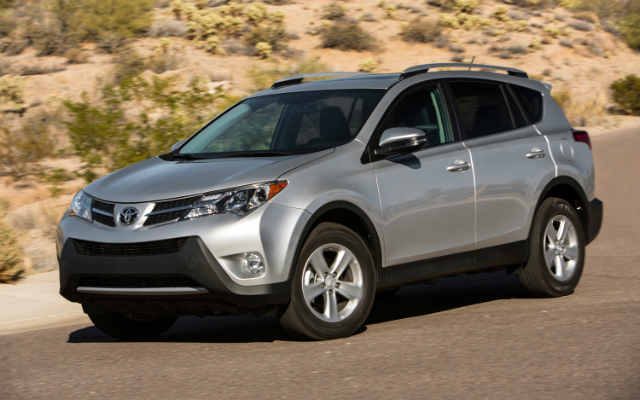Toyota is doubling down on its commitment to electrification with the upcoming launch of several hybrid and electric vehicles (EVs), including models set to debut in Nigeria. As the automotive industry shifts toward more sustainable mobility solutions, Toyota is positioning itself as a leader in both hybrid and fully electric vehicle technology, catering to a global demand for cleaner, more efficient transportation.
The company’s latest move includes a mix of all-new and updated models across various vehicle segments. These introductions are part of Toyota’s broader strategy to offer a comprehensive range of electrified options—including hybrid electric vehicles (HEVs), plug-in hybrids (PHEVs), battery electric vehicles (BEVs), and hydrogen fuel cell vehicles. By 2027, Toyota aims to increase its number of electric models to at least 15, up from just five currently in its lineup.
 One of the most notable upcoming releases is the 2026 RAV4. This sixth-generation SUV, which has built a reputation for reliability and versatility, will be offered exclusively in hybrid formats—both HEV and PHEV. The plug-in hybrid variant of the RAV4 is expected to deliver up to 320 horsepower with an estimated 50-mile electric-only range, marking a significant step forward in performance and sustainability.
One of the most notable upcoming releases is the 2026 RAV4. This sixth-generation SUV, which has built a reputation for reliability and versatility, will be offered exclusively in hybrid formats—both HEV and PHEV. The plug-in hybrid variant of the RAV4 is expected to deliver up to 320 horsepower with an estimated 50-mile electric-only range, marking a significant step forward in performance and sustainability.
Also joining Toyota’s electrified fleet is the 2026 C-HR Battery Electric Vehicle (BEV), designed to combine bold styling with exceptional power. This fully electric crossover will produce a total system output of 338 horsepower and comes equipped with standard all-wheel drive. According to Toyota, the C-HR BEV can accelerate from 0 to 60 mph in around 5 seconds, making it not just efficient, but also exciting to drive.
For those looking for a greener sedan option, the 2025 Prius Plug-in Hybrid is getting a refresh, offering an improved all-electric driving range of 44 miles. With a 0 to 60 mph time of 6.6 seconds, the new Prius balances efficiency with responsive performance, appealing to eco-conscious drivers who don’t want to compromise on everyday usability.
Another major step in Toyota’s electrification journey is the 2025 Camry, which is now available exclusively as a hybrid. With up to 51 miles per gallon (mpg) in combined fuel economy and all-wheel drive offered across all trims, the latest Camry underscores Toyota’s intention to mainstream hybrid technology in one of its most popular sedans. The decision to make the Camry hybrid-only reflects the company’s confidence in the long-term viability and acceptance of hybrid powertrains.
Additionally, the company will introduce the 2025 Crown Signia, a new gasoline-electric hybrid crossover that replaces the outgoing Venza model. With a combined output of 240 horsepower and fuel efficiency ratings of 39 mpg city and 37 mpg highway, the Crown Signia is designed to appeal to drivers looking for both luxury and sustainability.
These efforts are part of Toyota’s broader electrification roadmap, which includes expanding its global production base. Plants in Japan, China, Southeast Asia, and the Americas will support the ramp-up in EV and hybrid vehicle production, ensuring the company meets growing demand while maintaining its hallmark quality and reliability.
In Nigeria, Toyota’s electrification strategy will see the introduction of two hybrid models in the near future: the Urban Cruiser Hybrid and the Corolla Cross Hybrid. These vehicles are being tailored to meet the country’s unique driving and fuel economy needs. Equipped with advanced hybrid systems and supplementary battery packs, both models are expected to provide excellent fuel efficiency while supporting the Nigerian government’s ongoing push for greener, more sustainable transportation.
Toyota Nigeria Limited (TNL) has confirmed that the arrival of these models is part of its alignment with global environmental standards and the Federal Government’s green initiative. According to TNL, the hybrid systems used in these models offer not just reduced emissions but also a seamless driving experience for consumers who may be new to electrified vehicles.
The launch of hybrid models in Nigeria also marks a significant development in the country’s automotive landscape, which has traditionally relied on conventional internal combustion engines. As fuel prices fluctuate and environmental concerns become more pressing, the availability of hybrid options offers a practical and efficient solution for everyday drivers and fleet operators alike.
Toyota’s approach in Nigeria is expected to mirror its global strategy—offering reliable and technologically advanced vehicles while promoting long-term environmental responsibility. The company has pledged to continue working with local partners to support the maintenance and service infrastructure required for hybrid vehicles, ensuring that customers receive consistent support after purchase.
As part of its electrification vision, Toyota is not just introducing new vehicles but is also rethinking how mobility should evolve in the coming decades. With innovations in battery technology, energy efficiency, and design, the brand hopes to make electrified vehicles more accessible and appealing to a wide range of customers.
From city-friendly crossovers to performance-focused sedans and all-electric models, Toyota’s upcoming lineup demonstrates its readiness to lead in the new era of clean mobility—both globally and in emerging markets like Nigeria.
Support InfoStride News' Credible Journalism: Only credible journalism can guarantee a fair, accountable and transparent society, including democracy and government. It involves a lot of efforts and money. We need your support. Click here to Donate
